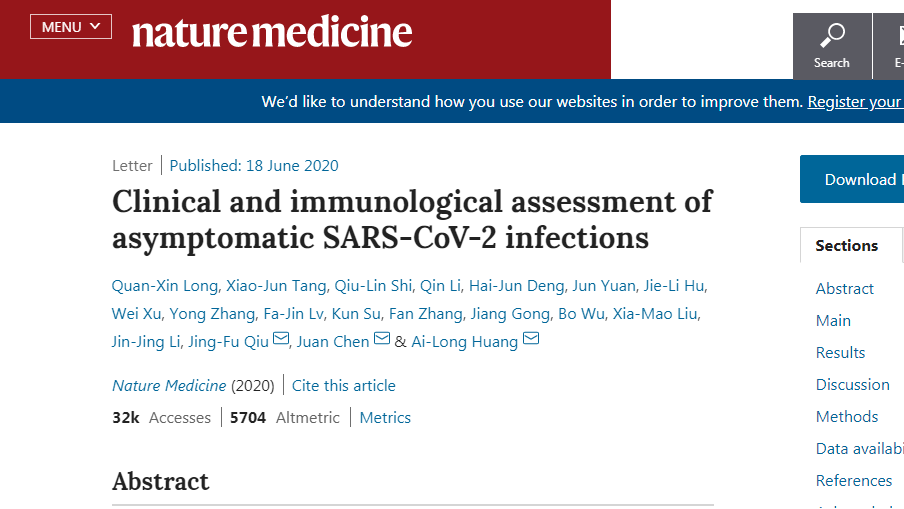
A new study published Thursday in Nature Medicine suggests that coronavirus antibodies may last only two to three months, especially in people who never show clinical symptoms while they get infected with COVID-19, which has killed more than 463,000 people globally so far.
The study researchers investigated 37 asymptomatic individuals from Wanzhou District of southwest China's Chongqing – those who were diagnosed with RT-PCR-confirmed SARS-CoV-2 infections but never developed any relevant clinical symptoms of the virus that causes COVID-19 disease. Their antibody response was compared to that of the 37 who showed symptoms, and researchers found that people without symptoms had a weaker antibody response than those with symptoms.
Within eight weeks, 81 percent of the asymptomatic people had a reduction of neutralizing antibodies, compared with 62 percent of symptomatic patients. In addition, the study also revealed that antibodies fell to undetectable levels in 40 percent of asymptomatic people, compared with 12.9 percent of symptomatic people.
Several experts suggested that the new findings do not necessarily mean that these people can be infected a second time, given that even low levels of powerful neutralizing antibodies may still be protective, as are the immune system's T cells and B cells.
However, the results give a strong note of caution against the idea of "immunity passports," which have been issued by some countries to enable people who have recovered from COVID-19, to travel or return to work.
Scientists from across the globe say they are still learning about key aspects of the coronavirus, including how immune systems respond once a person is exposed. But there is not enough evidence to indicate that the coronavirus antibodies ensure immunity against the virus and how long immunity lasts if antibodies do provide protection.
Dr. Anthony Fauci, the U.S. government's top infectious disease expert, also expressed his worries about the "durability" of a potential coronavirus vaccine earlier this month during an interview with JAMA Editor Howard Bauchner, saying that there is a chance it may not provide long-term immunity if COVID-19 acts like coronavirus.
"It likely isn't going to be a long duration of immunity," he said, adding that "there is never a guarantee." But he is "cautiously optimistic" about finding an effective vaccine as the global race to develop one continues.
(Cover: CGTN screenshot via the Nature Medicine website.)